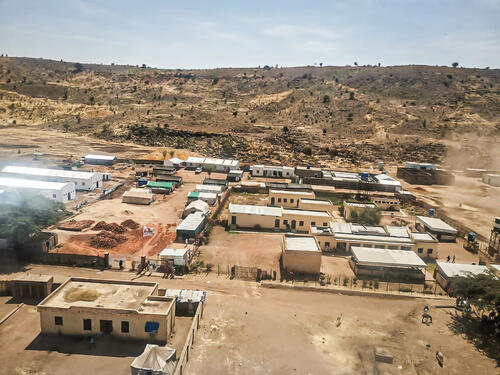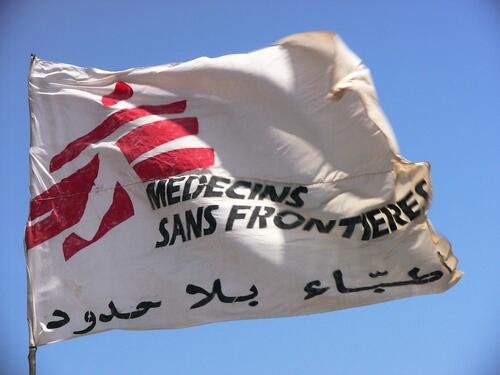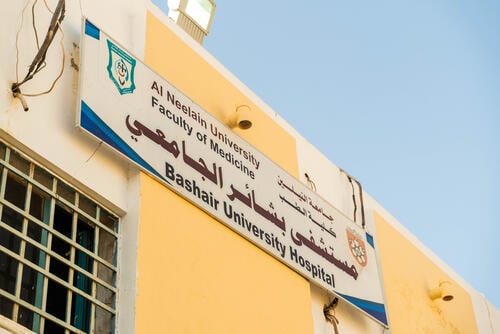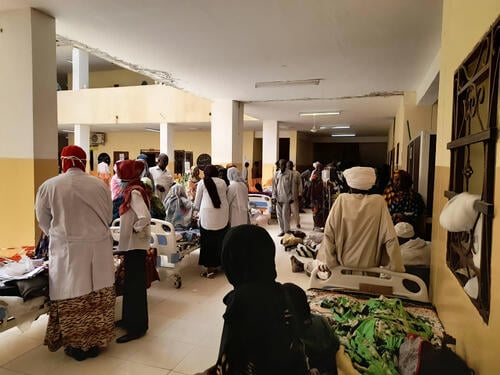Since the escalation of violence in many parts of Sudan on 15 April 2023, Médecins Sans Frontières (MSF) continues to provide medical humanitarian assistance in seven states in the country. In Rokero and Umo, the mountainous region of Central Darfur state called Jebel Marra has suffered through decades of conflict, neglect and exclusion from services.
In 2020, MSF upgraded the hospital in Rokero town to a specialist healthcare facility, serving more than 250,000 people. We manage the inpatient department, emergency room, therapeutic feeding centre, maternity and delivery wards and the observation room.
MSF project coordinator Nkemju Rosevelt together with Sudanese and international colleagues took the difficult decision to leave the project recently. Below, Nkemju, reflects on his experiences in the conflict-stricken country while on his way home to Cameroon.
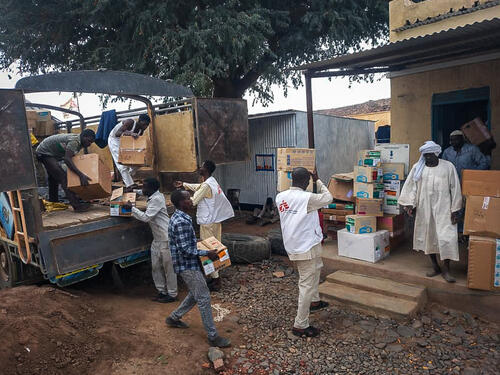
“I was in Rokero when the situation changed all over Sudan. We did not really expect this extreme escalation of violence. As a project coordinator along with my team, we had put in place contingency plans to ensure the security of our staff and patients, and to be able to assist in times of violence and insecurity.
What happened was far beyond what we had anticipated. While Rokero remains stable and calm, all the main cities in Darfur, like El Fasher, Nyala, El Geneina, Zalingei, Tawila and Kabila, as well as their surrounding areas, were caught up in heavy fighting, killing hundreds and injuring many more.
It was a tough decision to relocate and evacuate members of our team from the area. Before we arrived, most areas in Jebel Marra had been cut off from healthcare and other essential services for more than a decade, and in some in rebel-controlled areas for almost two decades.
It has been very emotional and difficult for those of us who left. We wanted to stay, but we could not ensure the safety of the whole team.Nkemju Rosevelt, MSF project coordinator in Sudan
We left behind a skeleton team of dedicated and experienced Sudanese colleagues, some of whom are from Rokero, and others who are from parts of Darfur. They continue to do an incredible job, working hard to maintain the hospital services in Rokero and basic healthcare activities in Umo, and working in remote villages through MSF-trained community health workers.
In Rokero, we faced the indirect effects of this terrible escalation. Although the area is calm, our team there is still dealing with multiple challenges as a result of the violence. Food, medication, as well as fuel to run generators or vehicles, aren’t getting in easily. In addition, bringing staff in and out to support and referring patients in need of surgeries is extremely difficult, as the road out of town remains dangerous.
As a project coordinator, it is difficult to deal with such an uncertain and fast-changing situation, as we don't know what is going to happen next and how best to plan ahead for our team in Rokero, for our patients and the communities we are there to assist. Thus, we had to evacuate our international colleagues, and the Sudanese colleagues who were from other parts of Sudan, while some Sudanese colleagues chose to stay and continue our work.
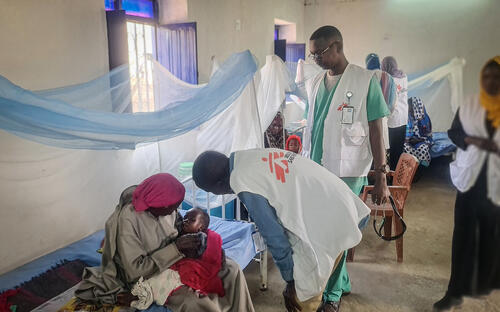
Increasing numbers of people who are fleeing from urban areas like El Fasher, Zalingei, Khartoum, are arriving to Jebel Marra. They arrive on commercial trucks with nothing, having escaped extreme violence.
The number of deaths among pregnant women and new mothers is high in Darfur. Some women lose their babies in the first trimester of their pregnancy because they ride donkeys or have to work extremely hard, tending to both the fields and their children. Most people here are farmers, growing sorghum and millet, but years of conflict and the recent escalation have frequently disrupted farming activities, leaving families without their crops or with a poor harvest. Most people can barely afford two basic meals a day.
I remember in July 2022, there was a huge malnutrition crisis. We travelled into the villages in the mountains with mobile clinics to treat children who were in deplorable conditions. We brought the most severely sick children to our therapeutic feeding centre and treated many in the villages.
It has been very emotional and difficult for those of us who left. We wanted to stay, but we could not ensure the safety of the whole team. I speak daily with our Sudanese colleagues in Rokero to understand what is happening. I feel relieved to know that they are doing well and continue their amazing work supporting the communities there.”
Across Sudan, MSF-supported facilities continue to provide medical care in El Fasher, North Darfur, in Kreinik, West Darfur, in Rokero and Zalingei, Central Darfur, in Um Rakuba and Tinedba, El-Gedaref state, in Ad-Damazin, Blue Nile State and Al-Jazeera state.



